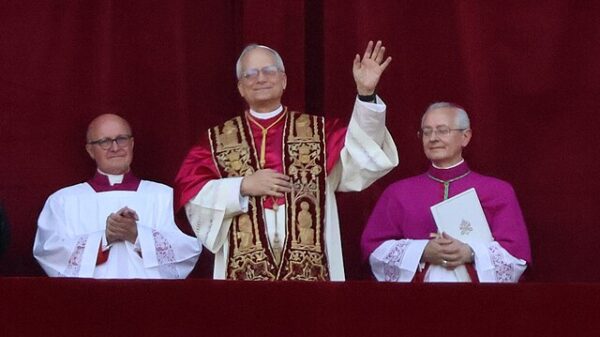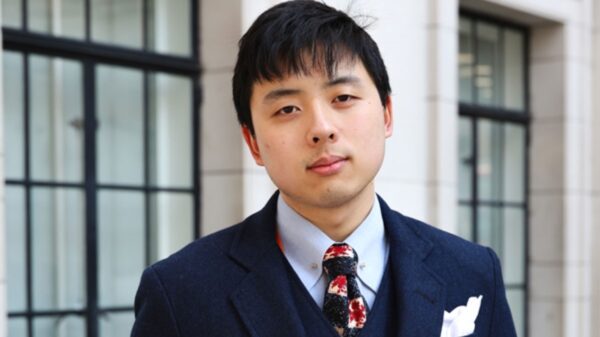In the finale of a two-part article, Roar writer Dania Quadri continues to relate her experiences as an Indian-English Muslim, reflecting on her experiences at King’s thus far.
Having grown up with a diverse friend group, King’s equally diverse student body appeals to me. I feel more at home in spaces where friendships are founded on empathy and cultural exchange, rather than having an immutable cultural identity. So, while I am aware of the religious and cultural societies at King’s that may relate to me – the Indian and Islamic Societies, for instance – I don’t necessarily engage with them. This is partly because my connections to Indian culture do not need reaffirmation, and partly due to my experiences on campus.
In hindsight, my very first interaction with Indians attending King’s on a WhatsApp group chat set the tone for what lay ahead. When Article 370 was abolished, the sentiments of many in the group mirrored the nationalistic rhetoric of ab Kashmir hamara hai, meaning “Kashmir is now ours”. There appeared to be widespread support for Modi, and the violence that followed the historical decision was proudly justified as a means to an end. There was no discussion regarding the wider implications this move would have for minority sentiments at home and abroad. Though this was almost enough to deter me from exploring Indian spaces at King’s, I was eager to learn how other Indian Muslims engaged with identity on campus.
Zaynub Murad, a third-year History student at King’s, told me she has had a similar engagement with individuals from India Society. She mentioned that there was no actual representation of Muslims in the society, the inferred message being that Muslims were not really seen as Indian. I agree. None of the committee members come from minority backgrounds, and I have seen no genuine effort to include Muslims as part of their narrative. In their defence, however, they did upload an Eid Mubarak post this year, and had a stall on during Charity Week – an Islamic Society initiative.
The implications of these deficiencies are reflected in their events – parties, pujas, speed dating, and alcohol-focused events. Nashrah Maheen, a first-year Medical student, told me: “I have no problem with parties. I just think that there is a lack of affordable and diverse events for those who may not drink.” She said that before university, she was excited to join India Society. But when she attended the meet and greet, she felt like she had to prove her “Indianness,” going on to say: “People just can’t get over the fact that you’re Indian and Muslim.”
So, for a more top-down approach, Zahra Kazi joined India Society as a Marketing Officer in the hopes of making the society more inclusive and reflective of the diverse spirit of the Indian subcontinent that is withering away. A third-year Geography student, she told me that she resigned when she felt that the society did not reflect her own personal ethics, with no room to discuss opinions, injustice, and politics.
This can be seen through the society’s silence in response to recent police brutality against students in India. Reza Khan, an international Master’s student at King’s, was particularly disappointed by this. Khan received no solidarity from his fellow Indian classmates on the issue, telling me: “No Hindu Indians wanted to speak about the injustice against students… only my international friends offered me support.” While Reza mentioned that the demands of being on a Postgraduate course meant he had less time to engage with societies, he said that he did find India Society to be “childish” and overly “Bollywood/party-centric” in a time when activism and awareness are critical. As Zaynub told me, “their silence is them taking a stand”.
While the Islamic Society or Ahlul Bayt Society may fulfil some Indian Muslims’ religious needs, they are not the be-all and end-all thereof. In fact, Nashrah and Reza both told me that they rarely felt the Friday qutbah addressed Indian Muslim issues. More importantly, all the students I spoke to identified with religion differently; so while they recognised and acknowledged the importance of religious societies, they still felt “there was a big gap”.
Just when I was becoming optimistic about finding like-minded Indians who opposed hate politics, the Indian Political Society at university was forced to cease all operations until further notice due to security threats from extremist organisations. It is unsurprising that the Hindutva rhetoric has seeped into campus life given the far-reaching consequences of transnational political affiliations. However, a few other societies remain which provide space to discuss all issues British, Indian and Muslim, including the King’s Indo-Pak Development Forum (IPDF), and perhaps the Intersectional Feminism Society (IfemSoc).
Consistently being expected to prove our Indianness, Britishness, and/or Muslimness in different social settings can be exhausting. It can feel as though we’re “being pressured from all sides”, as Zaynub put it. The effort to build a cohesive community must come from all sides too.
If you’ve grown up in British households that project Muslims as un-Indian, challenge the nationalistic rhetoric behind this. When someone asks you about India, do not centre the narrative around privileged or upper-caste Hindu experiences; include other narratives that run parallel. Use your collective experience of being othered for your brown skin in Britain to extend your empathy to those being othered for their religion or caste in the motherland.
I recognise that this article does not delve into the issues faced by other minorities within the minority, such as Muslim students from denominations such as Ahmadis and Ismailis, LGBTQI Muslims, and Muslims with disabilities. While I can’t speak for millions of Indian Muslims across the world, I will always be willing to listen to those facing injustice and oppression, whoever they might be.
My suggestions to any society wishing to represent India in the diaspora are fourfold. Firstly, India is a diverse country with different traditions, languages and customs – regionally, religiously and caste-wise. Reflect these differences in your events socially, economically, and culturally. Secondly, raise awareness about the varying communities that make our country what it is; minorities and members of lower-castes form the fabric of its very existence! Thirdly, collaborate with ALL religious societies meaningfully, and fourthly: spread awareness about ongoing injustice in India. Communities that are struggling need more than just a Bollywood Boat Party (by the way, some of us are from the South). We need solidarity.
Being Indian and Muslim is no paradox, and it never will be.















